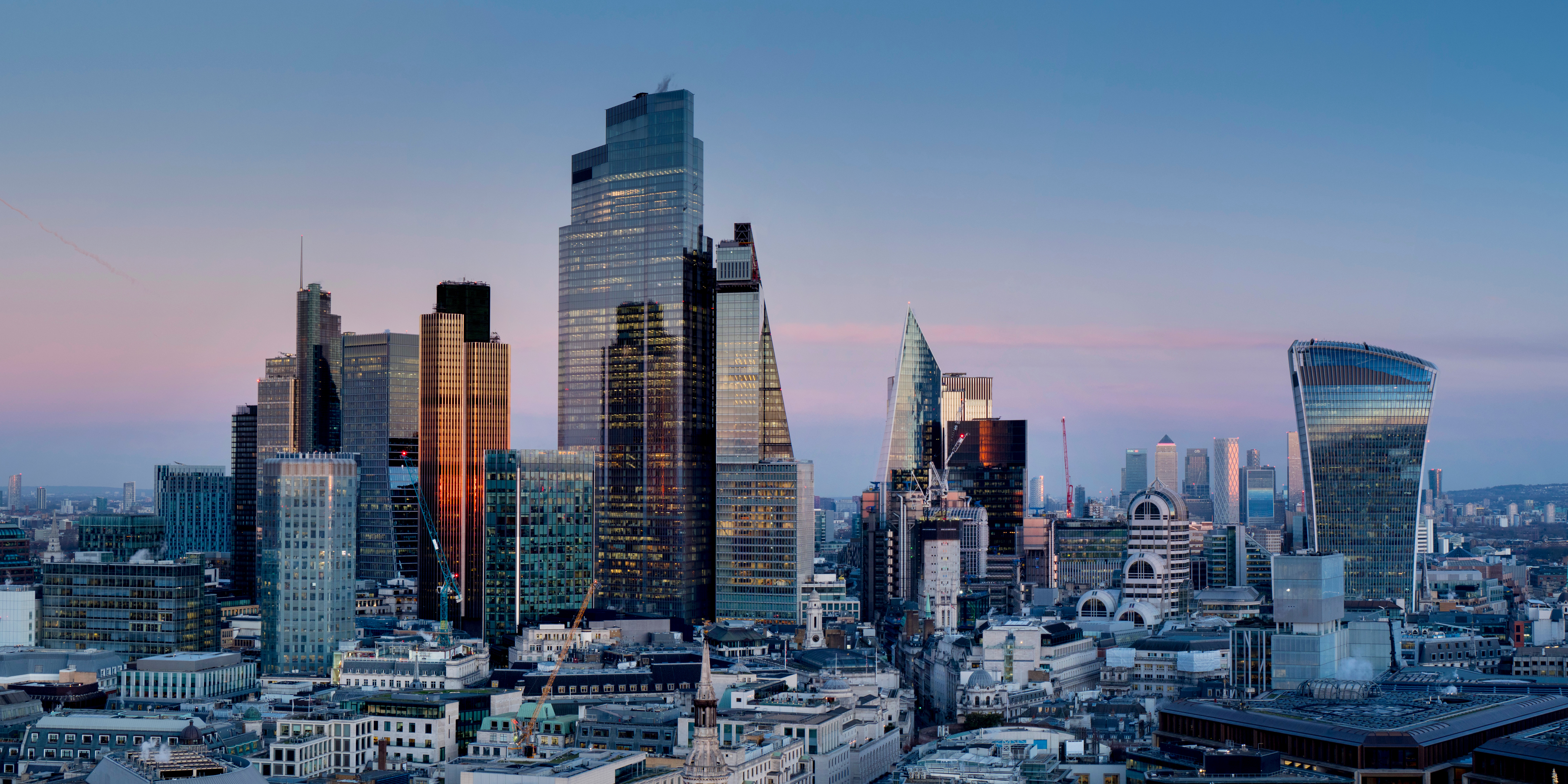
Sustainability Champion Eleanor Maciver explains her masterplan for Mewburn Ellis.
Forward: features are independent pieces written for Mewburn Ellis discussing and celebrating the best of innovation and exploration from the scientific and entrepreneurial worlds.
The mission to hit net zero by 2050 requires us all to pitch in. So what can an attorney firm do? Mewburn Ellis has had environmental impact in its focus for some time. It went up a gear two years ago with the appointment of Eleanor Maciver as Sustainability Champion. Her mission: to create the world’s most eco-friendly firm in the intellectual property industry.
With a master’s degree in natural sciences from Cambridge University, a DPhil in organic chemistry from the University of Oxford and postdoctoral research at Kyoto University in Japan, Eleanor brings academic heft to the role in addition to her natural passion for the cause.
‘Patent attorneys are scientists at heart,’ says Eleanor. ‘And the science tells us we need to act for life on planet Earth, as we know it, to continue. There is a genuine understanding and desire to get to net zero, not just amongst the partners, but across the whole firm.’
Carbon emissions and getting to net zero is the primary focus. Mewburn Ellis tracks all emissions. Scope 1 (company activities), Scope 2 (energy usage and indirect generation) and Scope 3 (suppliers and other business costs such as travel and employee commuting) are measured in detail and have been for some time.
Rethinking business travel
Eleanor says the data was challenging to get and involved a lot of time. It was worth it, as it revealed the largest source of pollution: business travel. Not surprising for an international professional services firm that sends partners around the world to work with clients and maintain and build relationships. Eleanor herself is a regular traveller to Japan.
‘We delivered a massive reduction in carbon emissions by changing how we travel,’ she says. ‘I’ve cut my travelling by around two-thirds. I sometimes used to go to Japan three times a year. Now I go once a year and schedule all my meetings for that visit. Covid has helped that, but it’s a mindset shift for the firm too.’
Everyone at the firm has been asked to examine their own journeys, particularly our frequent fliers. ‘We are just trying to be sensible,’ says Eleanor. ‘Do you really need to be there in person or can you meet online? Let’s think about and evaluate all of the costs of travel: time, financial and environmental. Much more can be achieved online now, but sometimes there is no substitute for face to face. We ask people to really think hard about what’s needed.’

Every external event and trip is now run via an assessment process, with details of the carbon footprint set against the business case. Travellers are asked to consider alternative modes of transport too. Working from home is accepted and encouraged as well to reduce travel. ‘Covid taught us how convenient and effective it can be to work from home. Our people appreciate the greater flexibility. There’s a trade-off in terms of losing the office dynamic and we work hard to retain that. Our commuting is down 50% due to our blended working policy.’
Mewburn Ellis invests in and promotes environmentally friendly travel not just for business but also personal travel for its people. There’s an electric vehicle car scheme, offering leases for EVs or hybrids via a salary sacrifice that’s been very well received. The government Bike2Work Scheme halves the cost of a bike for staff. There’s even a bike mechanic who pops into the office to tune up the cycles in some of the offices.
From energy use to tea bags
Energy use is scrutinised. A team looks at both how energy is consumed in the office and where the energy comes from. Mewburn Ellis works with its office landlords to see where the buildings can be improved. ‘We have audited our energy supply and are working with our landlords to improve this where possible. We’re already fully renewable in London, Bristol and Cambridge, and purposefully chose offices in Bristol and Cambridge that have strong environmental credentials. It now forms part of our property strategy, and where we’re considering new offices or moves it’s a key determining factor in our choice of building. We’re also looking at size of space and reducing where possible to be more efficient. We’ve already reduced our Manchester footprint by 36%, which is our most carbon-inefficient building,’ says Eleanor.
The attention to detail is impressive. Mewburn Ellis has a supplier strategy, for example, covering environment and diversity. All suppliers and business partners are required to participate in a survey regarding their own environmental initiatives and to read the policies and code of conduct that Mewburn Ellis would like them to adhere to.
There is a sustainability group at the firm as well, with teams looking at things such as consumables, including everything down to teas, coffees and milk. Packaging is looked at too, as well as how recycling is working in each office to ensure waste disposal is correctly followed. Signage and bins have been improved to ensure clarity and make this easy. The Bristol office noted an absence of glass recycling – now rectified. Nothing escapes notice.
Supporting green charities and initiatives
Engagement is kept high via the company intranet called The Hive, and special reports such as the Green Channel Report, Green IP Report and its annual Sustainable Communities Report, which summarises all activity for the year. Mewburn Ellis supports green charities, with donations to the Ocean Conservation Trust, The Climate Coalition, WRAP, Rewilding Britain and Action for Conservation.
Mewburn also buys a tree for every new matter it opens. ‘We have planted 58,000 trees so far in the Mewburn Forest and often buy them for clients instead of merchandise or corporate gifts. I recently donated money to plant trees both in Japan and the UK for a good Japanese client to celebrate their office move and our work together. They were impressed by our focus on sustainability,’ says Eleanor.
Measuring impact and achievements
Naturally this raises two questions. What impact is this work having? And just how time consuming is it all?
Mewburn Ellis wanted to ensure this environmental work was not merely a gesture, but delivered real, measurable results. The firm enrolled with EcoVadis, an independent sustainability measurement agency, to measure progress. The result was an EcoVadis Silver award. This is not a trivial achievement. EcoVadis analyses performance across a range of metrics, including environment, social and governance. It is used by over 90,000 companies in 160 countries. It is the elite standard. Mewburn Ellis is the first IP firm with a presence in the UK to be awarded a Silver medal, which it has achieved two years in a row despite the benchmark for Silver increasing, placing it in the top 25% of all rated companies worldwide and top 19% of the legal and accountancy profession worldwide.
‘We want Gold,’ says Eleanor. ‘The requirements keep getting harder, so we’ll need to improve just to stay where we are. It’s not a bad thing to be Silver. It reminds us we need to keep working hard.’
Mewburn Ellis also works with CDP, a global environmental disclosure system that enables companies and cities to measure, disclose, manage and share vital environmental information. It is considered the top standard for corporate environmental reporting.
And, yes, all of this takes time, says Eleanor. Creating a carbon scoresheet alone is labour intensive. ‘It’s a big project,’ she says. ‘I’ve seen the spreadsheets! Our accounting team put them together and it’s a huge job to be as accurate as possible.’
Each year the team works to make this more accurate and add in additional Scope 3 emissions such as employee commuting, which has been included for the first time this year following a staff survey.
Leading the way
Can Mewburn Ellis get to net zero? Eleanor is honest about the scale of the challenge and determined that it will achieve it. ‘Net zero means cutting carbon emissions to a small amount of residual emissions. It can be a 90–95% reduction. The rest is not offset, but stored permanently. Carbon capture technologies exist, and are constantly improving and scaling. Our commitment is to reduce the carbon we use by 42% in Scope 1 and 2 emissions by 2030, and then to 90% by 2050.’ These near- and long-term targets were validated in 2023 by the Science Based Targets initiative, a global body enabling businesses to set ambitious emissions reductions targets in line with the latest climate science. Mewburn Ellis is the only IP firm in the UK so far to have validated net-zero targets.
An additional motivation for Mewburn Ellis is to be a role model. If this firm can demonstrate how to tackle climate change, then others can follow.
‘We all need to do something to reduce emissions if we are to keep global temperature rises to 1.5°C,’ says Eleanor earnestly. ‘Individually we are a small business. We don’t burn coal to make steel, so proportionately our emissions will be smaller than some people’s will ever be. But it’s about acting collectively. We contribute to climate change, so we need to act. There’s no hiding away from that and we take our responsibility very seriously.’
How Mewburn Ellis offsets carbon
Mewburn Ellis is working hard to reduce its Scope 1, 2 and 3 carbon use. Until recently, what it could not reduce itself it chose to reduce via a mix of carbon avoidance and removal projects.
This year, Mewburn Ellis has decided to align with I, II and III of the revised Oxford Offsetting Principles from the Smith School of Enterprise and the Environment – it is shifting to removal-based offsetting only, it is supporting the growth and cost reduction of medium-durability CO2 removal technology, it is revising its strategy as its understanding and best practice develops, and it is purchasing verified credits to ensure the environmental integrity of these removals.
2021–22 projects
- Project 1: 60 tCO2e – Protecting the Tambopata-Bahuaja Biodiversity Reserve in Peru. This project is certified to Verra’s Climate, Community and Biodiversity Standard (CCBS), demonstrating its intentions to bring significant co-benefits to the local people and nature.
- Project 2: 253 tCO2e – Wind Power Project in Thailand. This project is verified by the Verified Carbon Standard.
- Project 3: 181 tCO2e – High-efficiency cookstoves in Tanzania. This project is verified by the Verified Carbon Standard and Verra’s Sustainable Development Verified Impact Standard (SD VISta).
- Project 4: 113 tCO2e – Preventing deforestation in the Democratic Republic of Congo. This project is verified by the Verified Carbon Standard.
- Project 5: 45 tCO2e – Generating electricity from landfill gas in Brazil. This project is verified by the Gold Standard.
2022–23 projects
- Project 6: 329 tCO2e – Solar power project in Morocco. This project is verified by the Verified Carbon Standard.
- Project 7: 10 tCO2e – Using biochar to remove carbon and enrich soils. This project is verified by the Puro Standard.
2023–24 projects
- Project 8: 40 tCO2e – Using biochar to remove carbon and enrich soils. This project is verified by the Puro Standard.
- Project 9: 7 tCO2e – Conducting woody biomass sinking to sequester carbon. This project is verified by Supercritical.
Written by Charles Orton-Jones
Eleanor is a Partner and Patent Attorney at Mewburn Ellis. She is also our Sustainability Champion and is responsible for leading the firm’s environmental strategy and our sustainability collaboration group, ensuring this remains an important focus for the firm. Eleanor is passionate about the role technology can play in a more sustainable future and enjoys working in close partnership to use her expertise to advance the commercial goals of her clients in this important area with a particular focus on sustainable chemical and material inventions.
Email: eleanor.maciver@mewburn.com
Sign up to our newsletter: Forward - news, insights and features
Our people
Our IP specialists work at all stage of the IP life cycle and provide strategic advice about patent, trade mark and registered designs, as well as any IP-related disputes and legal and commercial requirements.
Our peopleContact Us
We have an easily-accessible office in central London, as well as a number of regional offices throughout the UK and an office in Munich, Germany. We’d love to hear from you, so please get in touch.
Get in touch

